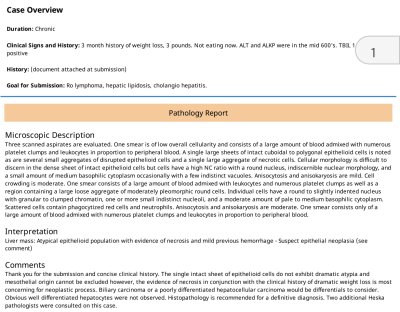A few weeks ago we noticed our 10 year old tortie cat had lost some weight and she stopped eating. We took her to the vet and they gave her fluids, a shot for nausea, an anti inflammatory shot, and a steroid shot but she was very jaundice so there was definitely something going on. Her appetite has been up and down and we went ahead to do the ultrasound because we didn’t notice a huge difference after the treatments. These are the results from the fine needle aspirate and I’m just trying to make some more sense of the results.
Attachments
-
547.7 KB Views: 41








